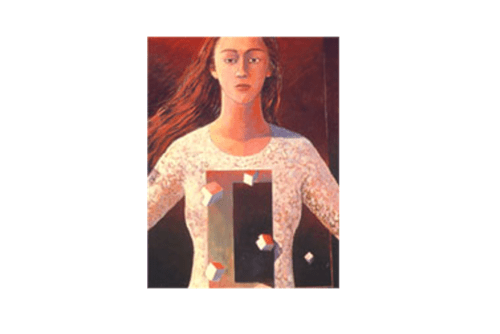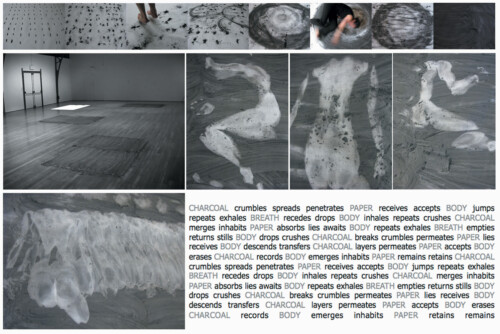Both disability and queerness were in evidence at the January 2007 World Social Forum (WSF) in Nairobi, Kenya. The WSF is a periodic and open meeting of groups in civil society committed to the idea that “another world is possible.” Originally a direct alternative to the annual meeting of the elites of global capitalism in Davos, Switzerland (that is, the World Economic Forum), the WSF has over the years become increasingly more generative in its own right. In the experimental spirit of radical openness, the exclusions from the WSF have been very few: officially only the state, multinational corporations, armed groups, and international financial institutions (the World Bank, International Monetary Fund, the World Trade Organization) have been barred.
I was pleased to hear from another friend who attended (as I did) that a comrade of his had suggested that if anything was hot at the 2007 World Social Forum, it was queerness and disability. The comment was playful and ironic, but also somewhat true, and particularly true of queerness, given the excitement that circulated around the “Q Spot,” organized by the Gay and Lesbian Coalition of Kenya. Disability too was coming out everywhere at the WSF, but in contrast to what I just suggested about the mainstream US gay movement, the elimination of queerness (and acceptance of gay marriage) was not paired with a disregard for disability; rather, in the end, queerness was repudiated (and gay marriage denounced) alongside the sometimes problematic incorporation or use of disability.
Disability, not queerness, was—in uneven, but discernible ways—neoliberalism’s magic sign in Nairobi. Disability provided a site for the extensive use of a language of “poverty” and “development” that is also the language of policies promulgated by neoliberal institutions like the World Bank. Arguably, if the World Bank did manage to get a place at the table at the 2007 WST, it did so because disability got it a ticket inside. The ways in which disability could be the site for both an activist movement and the extension of neoliberalism into a space that was specifically formed to provide an alternative—another world—should underscore what I asserted about the predatory system’s flexibility and contingency. To put a new spin on a well-known disability studies slogan—“all of us will become disabled if we live long enough”—all of us can become neoliberalism’s magic sign if we live long enough.
In contrast, queerness was the magic sign of that should raise suspicion for some parties to and observers of the WSF. The flexible and differential effects of neoliberalism meant that the casting of suspicion on queerness worked differently in the context of the WSF and the host nation of Kenya than in the United States. In the United States queers can be denounced, in part, because of their unwillingness to go along with the “reasonable” domestic agenda of gay marriage. Association with the unruly aspects of queerness (and the specter of multiple partners or uncontrolled relationships) is used to hurt gay marriage campaigns. At the WSF and in Kenya, association with gay marriage was used to denounce queer organizing. Not incidentally, the queers being repudiated in Nairobi, in contrast to the majority of those making a plea for acceptance and recognition in the US imaginary, were largely women or transgender people—Judith Ngunjiri, Emmanuel Kamau (a.k.a., “Auntie Ivy”), and other women or gender-queer people from the Gay and Lesbian Coalition of Kenya were the primary organizers of the WSF’s Q Spot. And marriage was just about the last thing on their minds: “meet Q people from all over the world,” their brochure said, “drink a cup of tea with your new Q friends, hear Q Kenyans tell their life stories, read Q pamphlets, listen to Q poetry, watch Q movies, see Q art, pay respect to fallen Q heroes, dance to Q music, get an HIV-test and counseling from Q-friendly professionals.” The sessions actually held at the Q Spot, moreover, rarely mentioned marriage: Dorothy Aken’Ova from Nigeria talked about West African lesbian feminism, women’s sexual pleasure, and reclaiming and reconstructing African sexualities; Viktor Mukasa from Uganda talked about gender transgression and radical trans activism; others talked about coalitions among East African lesbian groups or South American LGBT groups. And almost everyone linked this “Q” struggle to social justice more broadly: to environmental justice, to opposition to the neocolonialism of multinational corporations, to slum dwellers’ movements.
Nonetheless, same-sex marriage was spectrally present in and around the Q Spot. The sessions at the Q Spot were packed but in the big picture, it was still a relatively small part of the WSF. You wouldn’t know that based on the articles in the Kenyan press each and every day (or, even more egregiously, in the hostile response from a number of other counter-globalization groups at the WSF); you would think that a Q coup was just around the corner. “Now Kenyan gays seek recognition,” blared one headline. The article began, “Kenyan gays and lesbians want the State to recognize and allow them to marry.” 1 Given this positioning of Kenyan Qs as pretty much identical to Western gays and lesbians—thinking about little else but marriage, seeking recognition from “the State” (remember, of course, that “the State” wasn’t even supposed to be at the WSF)—it is perhaps not surprising that the perennial charge of “anti-African” circulated around these activists and speakers. My own observation, however, mirrored Stephen Barris of the International Lesbian and Gay Association (ILGA): “The journalists hurried to report on [the Q Spot], but also began to spread misinformation, writing that gay Kenyans primarily want marriage. [Because of the Western gay movement], the media, politicians, and therefore the public hear ‘marriage’ any time LGBT rights are mentioned. But marriage is way down the [list of] priorities of GALCK [Gay and Lesbian Coalition of Kenya] members, who are aiming for basic rights.” 2
At times their concerns were narrowly about safety and openness: Ngunjiri reported being far more concerned about her photograph and course of study at the University of Nairobi being printed in the newspaper than about “marriage,” and at the Q Spot’s dance on Sunday night, no photographs were allowed. But if at times a focus on physical and subjective integrity was prioritized, at other times the priority was clearly broadening the horizon of queer desires and expectations. Contrary to the claims in the popular media, the QSpot’s dance, with queer activists from all over Africa, was world-making precisely because the possibilities it embodied were not identical to the pleas (for acceptance, assimilation, tolerance, and marriage) put forward by neoliberal LGBT politics in the West. 3
Disability at the WSF was not so directly repudiated by the powers that be (state or media), despite the access nightmare of the Kasarani Center, where the events were held, and of Nairobi more generally. In contrast, in fact, there seemed to be an emphasis (for many of the disability groups present) on state-based inclusion and constitutional protections. This focus was particularly interesting in light of the magisterial failures of the Americans with Disabilities Act (more than three quarters of the claims leveled using this document are won by employers), but also in light of many of the makeshift signs at the WSF, including “Aristocratic National Constitutions Justify Poverty.” 4 It was not the emphasis on constitutional protections precisely (or entirely) that troubled me, however, so much as a sense that some of the disability sessions—very well-received—seemed to be speaking a language partly crafted by the World Bank: “disabled people everywhere are excluded from the development process and by the main development organizations,” “disability is one of the main causes of poverty in the developing world.” It’s not that those statements don’t have the ring of common sense about them; it’s just that I question, to invoke a distinction made by Antonio Gramsci, how and where that common sense is working and and how and where it is blocking good sense.
The World Bank has rushed to embrace a “multi-factorial” model for reducing “poverty” and increasing “development.” This model doesn’t speak at all about capitalism but rather about the supposed wide range of factors that “cause” poverty. It’s amazing how often and quickly the idea that “disability is related to poverty” becomes “disability causes poverty” and just how effectively that thesis shuts down both a critique of capital and more importantly, the possibility that disability might be a subjective site from which to levy such a critique. 5 Yet the discussion of alternatives is arguably the very purpose of the WSF: It has been conceived of as countering the Thatcherite doctrine of TINA, “There is no alternative.” In this specific location, since intervention and a block on the discussion of alternatives is exactly what neoliberalism needs, disabled people become quite useful figures, just as the Qs at the Q Spot are not. 6
Neither queerness nor disability is monolithic. My purpose in this essay has been to illuminate and critique the global flexibility of neoliberalism, and to spotlight different uses of queerness and disability—converging or diverging, it’s no longer possible to say one thing about either. But the fact that it’s no longer possible to say one thing is perhaps not at all defeatist, but rather a crucially important queer-crip insight: We are continually generating a multitude of ways of being queer and crip, and of coming together. If we hope for another world that is not only possible but livable, we can and should continue to generate more.
- “Now Kenyan gays seek recognition,” Daily Nation (Nairobi) 22 Jan. 2007: 5.[↑]
- Stephen Barris, “Respect for All! Another World is Possible for African LGBT People, Too.” PeaceWork, Issue 374. April 2007. Accessed 30 January 2012.[↑]
- I mean for these reflections on the Q-Spot dance to echo a range of recent crip analyses of the world-making power of dance; see especially Simi Linton, My Body Politic: A Memoir (Ann Arbor: U of Michigan Press, 2007) 152-155; and Sharon L. Snyder and David T. Mitchell, Cultural Locations of Disability (Chicago: U of Chicago Press, 2006) 199-203.[↑]
- The failures of the ADA led to the ADA Restoration Act of 2007, which evolved over the course of a year and was signed into law as the ADA Amendments Act of 2008 on September 25, 2008. The Amendments Act attempts to reverse the increasingly limited interpretation of who counts as “disabled” and who can claim protection under the ADA. The more limited interpretation had been codified over the previous 18 years by the conservative majority of the Supreme Court of the United States. The Amendments Act took effect on January 1, 2009, and several things remain to be seen: the effect the Amendments Act will have; the degree to which the administration of President Barack Obama (in contrast to the administration of George W. Bush) will defend the ADA and the Amendments Act; and how or whether the constituency of the Supreme Court, charged with interpreting these documents, will shift over the next several years. Despite these unknowns, my point in the conclusion of this essay is to affirm that the liberal, state-based strategy of the disability rights movement has its limits and that an increasingly global movement needs to continue pushing beyond those limits, to considerations of disabled subjects (for instance, undocumented workers) who generally are not encompassed by a state-based approach.[↑]
- For a stunningly direct example of these processes, see: the World Bank, Social Analysis and Disability: A Guidance Note. Incorporating Disability-Inclusive Development into Bank-Supported Projects (Washington: World Bank, 2007). The words “capitalism” and “neoliberalism” never appear in the 95-page document, although an entire section ostensibly considers “disability and poverty.” See my analysis of this document in “Taking It to the Bank: Independence and Inclusion on the World Market,” Journal of Literary Disability 1.2 (2007): 5-14.[↑]
- These thoughts on the ways in which a figuration of disability disallows the possibility that disability might be a subjective site from which to critique capital are indebted to Roderick A. Ferguson’s arguments on how the racialized prostitute serves a similar function in discussions of capitalism from a range of political perspectives. See his Aberrations in Black: Toward a Queer of Color Critique (Minneapolis: U of Minnesota Press, 2004).[↑]



